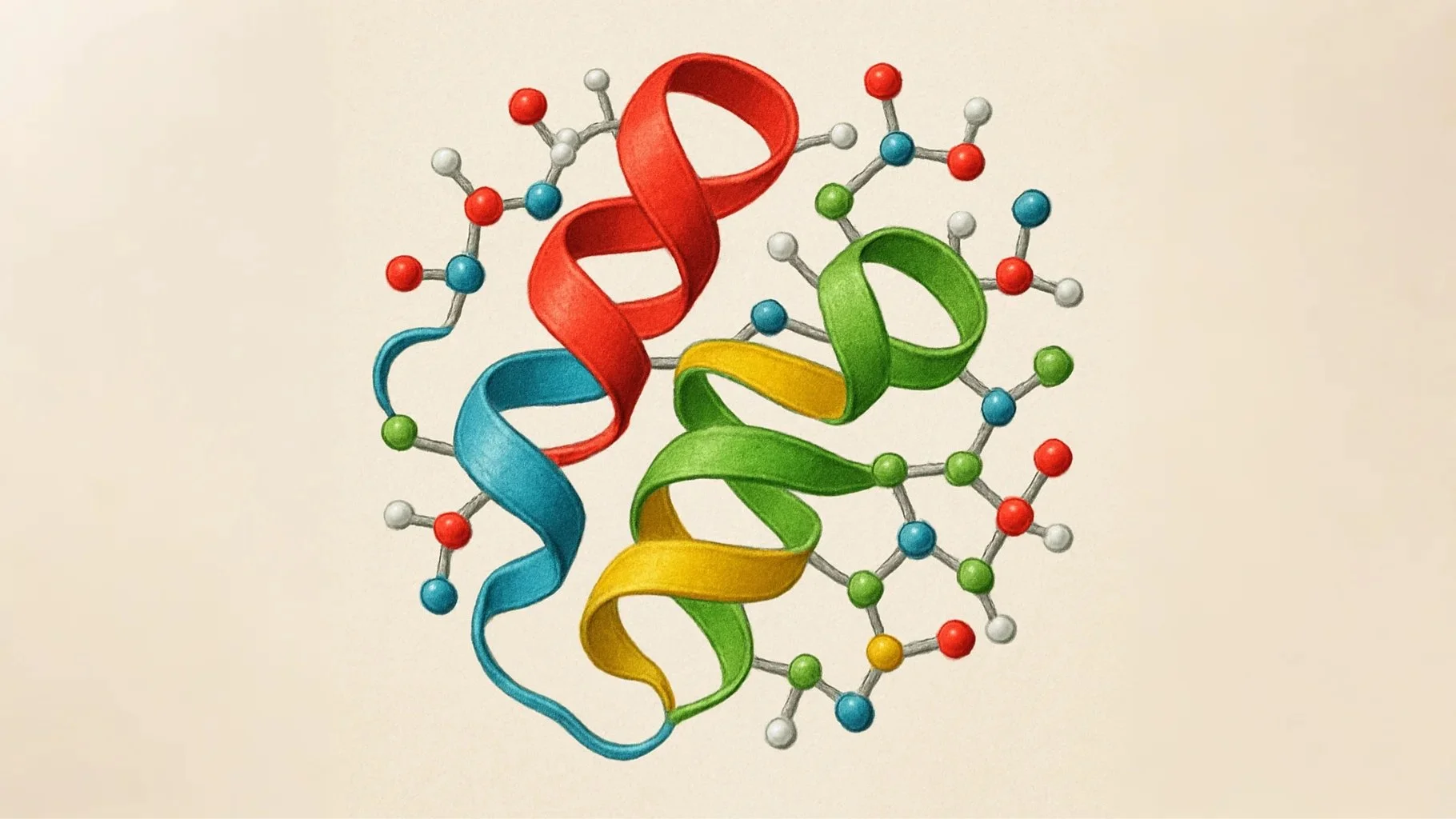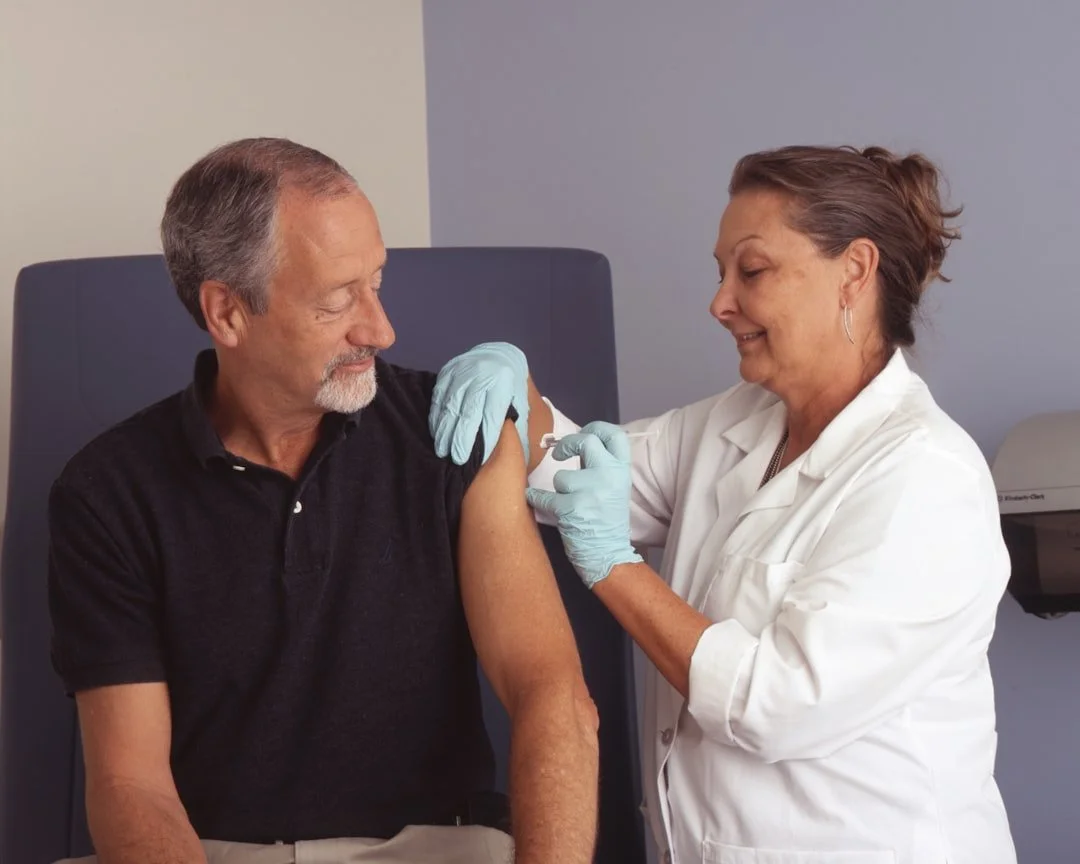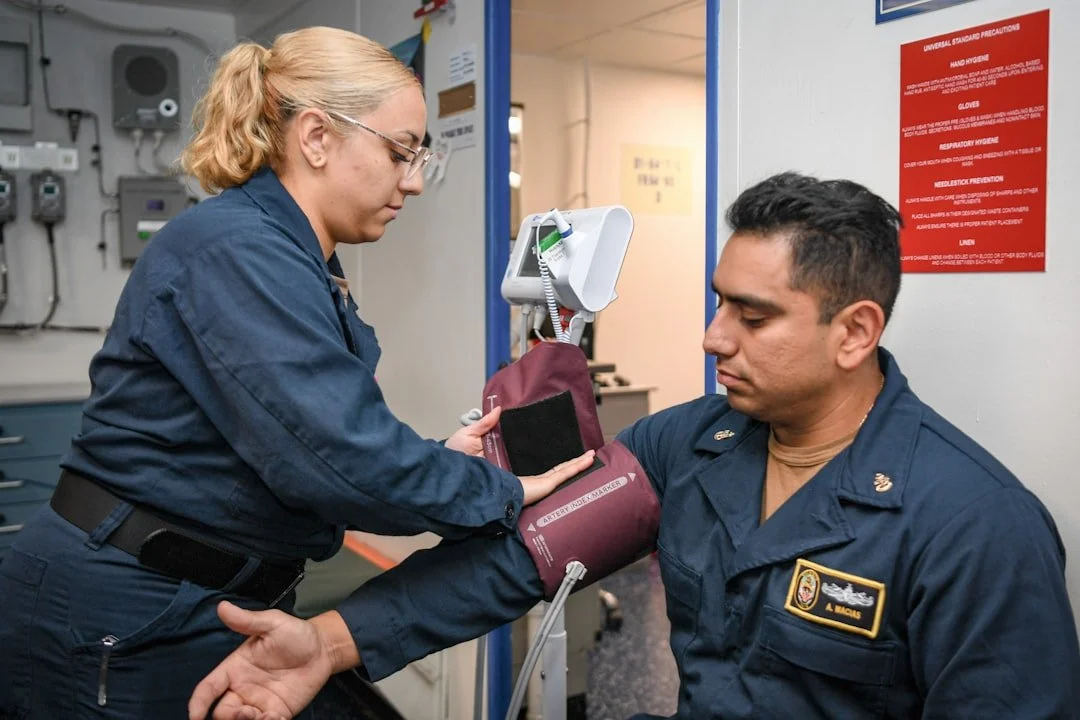Peptide Therapy: A Comprehensive Guide for Beginners
Are you thinking about peptide therapy? Here is a simple guide about what you need to know.
Peptides are short groups of amino acids. Amino acids are the parts that make proteins in your body. Peptides work as signals for many things that happen in you.
The benefits of peptide therapy are many. Peptides can help slow ageing, support muscle growth, boost immune function, and help with getting better after injury.
There are many types of peptide treatments. Each type will target different functions and health goals for you.
Administration methods include injections, oral supplements, and topical creams. Each peptide has a different way of being used.
Most peptides are safe, but some do have side effects. So you should talk with your doctor before starting the therapy.
Peptide therapy is a cutting-edge way to support your body's natural abilities, from muscle recovery to anti-aging.
Understanding Peptides and Peptide Therapy
Have you ever thought about what peptides are? Simply put, they are small molecules made from short chains of amino acids.
You can think of peptides as smaller and more focused forms of proteins. Your body makes these strong molecules to help with many important things. They fix damaged tissue, support your immune system, and play a role in hormone production.
Peptide therapy is when you use special therapeutic peptides to help your body work better. The treatment can use peptides made in a lab or found in nature. It helps to fill in the nutritional gaps you might have.
Peptides can also help your body's functions do more, like when you need extra help. Peptide therapy sends signals to your cells, making your cells do things such as make muscle or fix broken tissue.
Peptides in Food and Supplements
You don't have to get special therapy to have peptides. They are already in lots of everyday foods.
They are made up of amino acids, and you find amino acids in foods with protein. These foods help your overall health. A balanced diet is one way to give your body what it needs.
Some common food sources of peptides include:
Meat, fish, and shellfish
Eggs and milk
Beans, lentils, and soy
Beyond food, you can also see peptides in dietary supplements. A lot of these come as powders or pills. Many people use them for more muscle mass or better skin health.
When you take these short chains of amino acids by mouth, your body breaks them down in digestion. This means you get less benefit from them. Researching dietary supplements and talking to a professional before you decide to use them is always a good idea.
How Does Peptide Therapy Work?
Peptides are the tiny messengers that fit into cell receptors like a key in a lock, signaling your body to kickstart essential functions.
The peptides work as tiny messengers. They stick to certain spots on your cells, giving instructions to your cells to start doing certain tasks. It is much like how a key fits into a lock and starts something inside the cell. These steps are what help make your body feel good and work well.
This signalling can change many things in your body, like how hormones are made. Some peptides, for instance, can make your pituitary gland release more growth hormone. A higher level of human growth hormone can help you build muscle, heal faster, and speed up your metabolism. Peptide therapy can be a very helpful way to make your body work better.
Many peptides get broken down in your stomach, so peptide injections are often used. This kind of hormone therapy puts the peptides straight into your blood. It helps your body take in the most it can, and it works well, since it does not get messed up by stomach acids.
Key Peptide Therapy Benefits for Health
Two of the most sought-after peptide therapy benefits are combating age-related muscle loss and promoting a more youthful vitality.
Two of the most popular benefits of peptide therapy are muscle growth and anti-ageing. As we get older, the body makes less collagen and growth hormone. Because of this, people often see signs of ageing like wrinkles, softer bones, and a drop in muscle mass.
Peptide therapy can help your body fight these things. It does this by telling the body to make more of these important proteins. For this reason, some people use peptides, such as CJC-1295 and Ipamorelin. These can help you feel and look more refreshed.
Benefits of Peptide Therapy for Muscle Growth
For athletes, peptide therapy for muscle growth is a game-changer that naturally signals your body to increase growth hormone production.
For athletes and people who like to work out, peptides can be a good way to help with performance and recovery. Some peptides help make more growth hormones in your body, help build your muscles, make you feel stronger, and help with fat loss. Peptides also help your body repair tissue and lower swelling after you work out. Because of this, you can work out harder, feel better faster, and reach your fitness goals in less time.
Peptide Therapy for Specific Conditions
Peptide therapy is not just for muscle growth and fighting signs of ageing. The use of peptides can help with many health issues. People who have chronic diseases or feel pain in certain parts of the body all the time can get real help from this therapy. BPC-157 stands out in pain management and tissue repair. It has benefits for those with injuries and swelling in the body. This peptide can also work to keep your gut healthy by helping to fix the lining in your intestines.
Other peptides go to work in different parts of the body. GHK-Cu, for example, helps rejuvenate your hair follicles so you can grow more hair. Some peptides help with blood pressure because they relax your blood vessels, and the blood flows better.
Some peptides can improve your immune system. This helps your body fight off germs and sickness better. So, peptide therapy can support your health and what you need to feel good.
Administration Methods of Peptide Injection Therapy
A common and effective method for administering peptide injection therapy is done by a healthcare professional.
If you want to try peptide therapy, you may wonder how doctors give it to you. The way of drug administration can be different for each person. It depends on the type of peptide you use and what you want from the treatment. The most common ways are peptide injections, pills you take by mouth, depending on your skin.
Each choice has its own advantages and disadvantages. The best method for you will depend on your individual needs and how the peptide works. For example, some peptides work best when they go straight into the bloodstream, while others are best when you put them on your skin. Let's discuss these different methods now.
Injections, Oral Supplements, and Topical Applications
Peptide injections are easy to use and work well for most people. A doctor gives you the shot under your skin. This way, the peptide goes right into your blood. It does not pass through your stomach, so your body gets the full benefit fast.
Many use this method to boost growth hormone. You might notice some mild or short-term redness or feel a bit of irritation at the injection site.
Oral supplements are another choice you can go for. They are easy to use and simple to take. But they may not work as well as you hope. Stomach acids break down many peptides before your body can take them in. Only some peptides will stay strong enough in the stomach for your body to use them. So, knowing which peptides can be used this way is important.
Finally, people use creams and serums on the skin for local benefits. These topical applications often contain peptides, like GHK-Cu. This helps the skin feel firmer and softer, lessen wrinkles, and look better.
Injections: These let the body take medicine immediately, so it starts working everywhere in the body.
Topical Creams: These are good to use right on the skin to help with one area on the surface.
Peptide Drugs – Medical Uses and Regulation
It is important to know the difference between peptide supplements and peptide drugs. Peptide supplements do not have as strict controls as peptide drugs. Peptide drugs are tested thoroughly and checked by organizations like the FDA.
In the U.S., over 100 peptide drugs are approved for different medical uses. These uses include care for type 2 diabetes, osteoporosis, and advanced prostate cancer.
Consultation With Peptide Therapy Expert
Before starting peptide therapy, a consultation with a qualified peptide therapy expert is crucial. They will review your health history, check vital signs, like blood pressure.
Before you get started with peptide therapy, it is good to know about the way regulation works. Many peptide drugs have FDA approval. These go through clinical trials that take a lot of time and work.
However, there are not many rules for supplements. So, the quality, safety, and purity of peptide supplement you find without a prescription can be very different. A qualified provider will be there to help you figure out your choices.
The doctor will ensure you get safe peptides that work well. They will check your medical conditions and look at your health goals, helping them to decide if peptide therapy is right for you.
Working with a professional lets you avoid the risk of fake products or things that are not made right. At LifeLab, you get book an appointment with a peptide therapy expert, who can do a health checkup and give a clear recommendation and plan for this treatment.
LifeLab is an online hormone and peptide therapy clinic, that delivers services at the convenience of your home. With their help, you will be watched to get the best results and to keep any potential side effects small. At LifeLab, a peptide therapy expert will help you to feel good and keep you safe from side effects.
Conclusion
Peptide therapy is a new and growing area in health and wellness. It can be used for muscle growth, anti-ageing, and helping with some medical conditions. If you want to start this treatment, knowing about the different types of peptides is important. You should also learn how they can be given and their possible side effects.
You should always talk to a trained provider to get the care that is right for you. Your provider can help you with your personal health needs. Peptide therapy may help people recover from injuries or achieve other health goals. It is good to stay informed and ask questions so you feel confident about what you are doing.
If you are ready to learn more about peptide therapy and want to discuss how it can help you, set up a consultation today. A professional can discuss your needs and any possible side effects and make a plan just for you.
Frequently Asked Questions
-
An ideal candidate for peptide therapy is someone who wants help with the signs of ageing or has low hormone levels. It can also help if you feel slow to recover or have other health concerns. The best way to see if this is right for you is to talk to a doctor. They can examine your needs, medical conditions, and overall health goals.
-
You can get amino acids from meat, fish, and beans. You can also take dietary supplements like collagen for this. These help with overall health. But they are not as focused as peptide therapy. Peptide therapy involves using particular peptides to achieve specific effects in the body, leading to more targeted outcomes.
-
During your doctor consultation for peptide therapy, ask about the benefits of peptide therapy that are right for you. Talk about possible side effects, the cost, and how long the treatment will last. It is also important to find out how the plan will fit your individual needs and the goals you have for your health.






